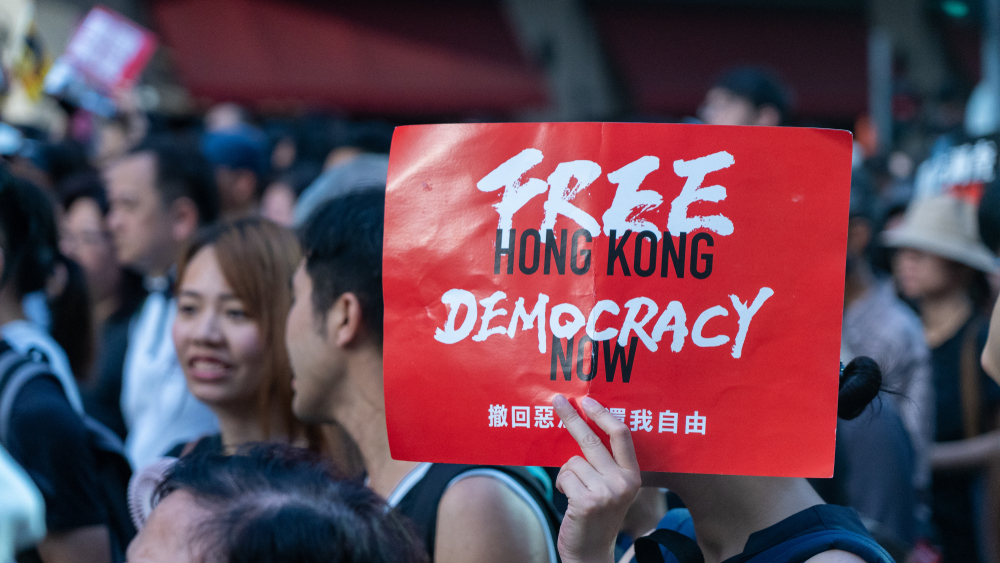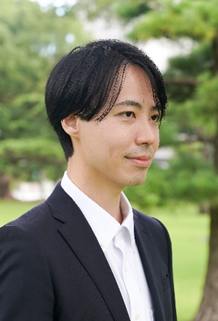

Fragmented Voices: The Struggle for Democracy in Hong Kong and Abroad
Alric Lee
(Executive Director, Japan Hong Kong Democracy Alliance)
February 7, 2024
The situation in Hong Kong has taken a worrying turn with the intensification of efforts by the Hong Kong Police’s National Security Department against activists, a move that has raised significant concerns about the erosion of freedoms and democratic values in the region. This crackdown is not limited to local activists but extends to Hong Kongers living abroad, reflecting a broader strategy of the Hong Kong government to suppress dissent across geographical boundaries. The implications of these actions are profound, affecting not only those directly targeted but also shaping the identity and response of the Hong Kong diaspora worldwide.
Extended Enforcement Overseas
The Hong Kong Police’s National Security Department has escalated its efforts against activists, extending its actions to Hong Kongers overseas. In early July, arrest warrants with a bounty of 1 million Hong Kong dollars each were issued for eight prominent democracy activists abroad, including former lawmakers Nathan Law, Dennis Kwok, and Ted Hui, on charges ranging from collusion with foreign forces to subversion of state power.
Shortly after the warrants were issued, the police arrested five former members of the now disbanded Demosistō, a notable pro-democracy group. These individuals were accused of using a mobile app to raise funds, allegedly to support these overseas activists.
A central element of the authority’s strategy seems to be aimed at severing ties between overseas Hong Kong activists and their supporters within Hong Kong. This approach is not just about quelling dissent but also about isolating the Hong Kong diaspora groups, which have become increasingly scattered. By targeting financial support mechanisms and key individuals, the Hong Kong government is effectively attempting to dismantle the networks that sustain and connect the pro-democracy movement across borders.
In early November, a 23-year-old Hong Kong student, Yuen Ching-ting, was sentenced to two months in prison for “seditious” social media posts made while in Japan, serving as another stark example of transnational repression. Yuen was prosecuted for acts deemed seditious under Hong Kong law, despite the fact that the majority of these posts were made while she was studying at a university in Japan. This case illuminated the extended reach of Hong Kong’s laws and the willingness of its authorities to enforce these laws beyond their territorial boundaries, targeting members of the Hong Kong diaspora and suppressing dissent even in foreign countries.
The case of Yuen, along with the high-profile arrests and warrants, underscores a broader strategy of the Hong Kong government to exercise control over its citizens and suppress dissent, irrespective of geographical boundaries. The use of legal instruments like the National Security Law and sedition charges to target individuals overseas demonstrates a methodical approach to curb the activities of the pro-democracy movement globally. This form of transnational repression is indicative of an increasing trend for the Chinese authority to extend its domestic policies and control mechanisms internationally, particularly against dissidents and activists.
Decline in Freedom and Democracy
The alarming decline in freedom in Hong Kong is starkly reflected in its falling positions in various global indices. Hong Kong, once celebrated as a haven for press freedom in Asia, has seen a dramatic fall to 148th place in the Reporters Without Borders annual index on press freedom. This sharp descent, a decline of nearly 70 places in a single year, is largely attributed to the implementation of new national security legislation in 2020 and the revival of colonial-era anti-sedition laws. Since the enactment of this legislation, at least three media outlets have either been forced to shut down due to national security investigations or have voluntarily closed, citing legal risks. This crackdown on the media significantly undermines the freedom of expression in Hong Kong.
Further illustrating this downturn, Hong Kong’s ranking in global democracy and freedom charts has also slipped. It now stands at 88th in a democracy ranking, trailing behind countries like Libya and Ukraine, and is placed 34th in a freedom index. The Economist’s democracy index has reported a noticeable loss of manpower in Hong Kong’s civil service, attributing this to worsened political conditions and shrinking freedoms.
Emigration Problem
This trend of diminishing freedoms and deteriorating democratic values in Hong Kong is accentuated by a marked increase in emigration. Notably, during the years of the COVID-19 pandemic, which imposed severe restrictions on international travel, Hong Kong still recorded a significant net outward movement of its population. The statistics are stark: there was a net outward movement of 85,000 individuals in 2020 and 75,000 in 2021, a dramatic shift from the previous decade where such figures were rarely negative. This growing exodus is not just a numerical curiosity but reflects a deeper sentiment within the Hong Kong populace. A 2021 survey by the Hong Kong Institute of Asia–Pacific Studies reveals this sentiment, indicating that the proportion of Hong Kong residents considering emigration rose from 33% in 2017 to 42% in 2021.
The recent surge in emigration from Hong Kong has led to a significant evolution in the identity of the Hong Kong diaspora. At the heart of this transformation is the stirring of a collective consciousness, brought into sharp focus by the events in Hong Kong. These events have not only reawakened a deep-seated sense of belonging among the diaspora but also created a sense of “community” that, while difficult to articulate, transcends physical and linguistic boundaries. This community is less about geographic proximity and more about a shared understanding and mutual empathy born out of common experiences and struggles.
Identity at a Crossroads
However, as time progresses and individuals in the diaspora adapt to their new environments, the once unified response to Hong Kong’s situation begins to diverge. This divergence is not just a reflection of the physical distance from their homeland but also a result of new cultural, political, and social influences. The community thus finds itself at a crossroads, with debates over methods of action and visions for Hong Kong’s future highlighting a broader question: Is the diaspora’s sense of community disintegrating, or is it merely evolving into different forms across various regions and times?
Central to this evolving narrative is the realization that the so-called “Hong Konger community” is not a monolithic entity but a tapestry of individual identities and stories. Each member of this community brings a unique perspective shaped by their personal journey, making the diaspora a mosaic of different “I’s” rather than a singular, uniform group. This realization challenges conventional notions of community and prompts a reevaluation of what it means to be part of the Hong Kong diaspora.
The self-identification of individuals within the diaspora reflects this diversity. From those who view themselves as exiles or immigrants to those who embrace a broader, global identity, these self-descriptions are more than mere labels; they are reflections of each individual’s political stance, cultural assimilation, and personal experiences. Whether identifying primarily with Hong Kong or their country of residence, these identities significantly influence their political engagement and choice of action.
The Three Approaches
The varied range of identities within the diaspora, in turn, shapes its political landscape. Some may opt for integration into their host country’s political system, seeking to influence from within, while others might focus on preserving Hong Kong’s cultural heritage or advocating for change in the international political arena. These differing approaches are encapsulated in the three main strategies adopted by the diaspora.
The first strategy revolves around proactive engagement with the local systems in the countries where the diaspora has settled. It involves integrating into the social fabric and political structures of these countries to gain political leverage and resources. A critical aspect of this strategy is encouraging Hong Kong people to run for local council positions, thereby entering and influencing the local power systems. This approach is designed to build a base of political support and gather resources that can aid Hong Kong’s cause from afar.
Building on this notion of engagement, the second strategy focuses on the goal of returning to Hong Kong and prioritizing the city’s local context in all efforts. It encompasses establishing underground networks to initiate actions within Hong Kong and transmitting local culture, thereby keeping the connection with the homeland alive and active. This approach, rooted in a strong attachment to Hong Kong, emphasizes direct involvement in the city’s affairs, regardless of physical distance.
Complementing the first two, the third strategy seeks to challenge and reshape the international political frameworks that influence Hong Kong’s destiny. This ambitious approach involves advocating for self-determination and collaborating with other groups globally that have been similarly unable to secure protection within existing international systems. The aim is to forge a new collective framework that better addresses the needs and rights of such communities.
In the broader context, the situation in Hong Kong and the response of its diaspora are emblematic of the challenges faced by many communities grappling with political repression and the quest for democracy. The Hong Kong diaspora’s evolving identity, diverse strategies, and the challenges they face in balancing integration and advocacy present a compelling study of how global communities respond to political change and oppression. Their story is not just about the struggle for democracy in Hong Kong but also about broader themes of migration, identity, and the enduring human spirit in the face of adversity. As the world watches the unfolding events in Hong Kong, the lessons learned from the experiences of its diaspora will undoubtedly contribute to our understanding of global politics and the persistent quest for freedom and democracy.
Alric Lee, originally from Hong Kong, has an educational background that spans continents. He completed his undergraduate studies in the United Kingdom and earned a master’s degree in engineering from the University of Tokyo in 2017. In 2019, Alric founded the Lady Liberty Hong Kong group amidst the height of pro-democracy protests. The group, recognized for creating the iconic Lady Liberty Hong Kong statue, played a notable role in shaping the identity of the Hongkongers who supported the movement. Under his direction, the group raised over 6 million HKD, contributing to various humanitarian initiatives. Further extending his efforts, Alric took on the role of Executive Director for the Japan Hong Kong Democracy Alliance in 2023. This organization focuses on amplifying Hongkonger voices in Japan and strengthening ties among pro-democracy groups in East Asia.
